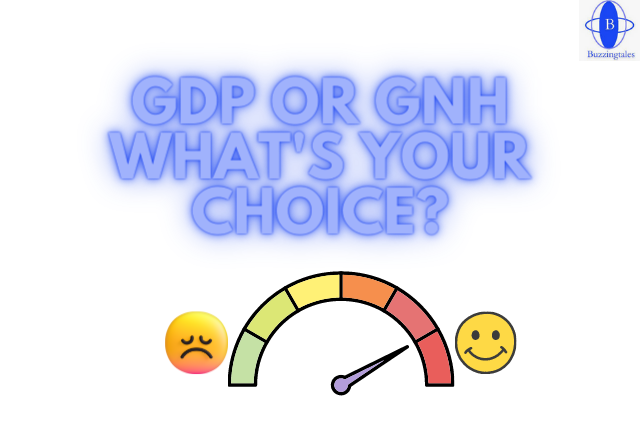GDP or GNH- What’s your choice?
Just before his demise he famously told New York Times- “My life was never destined to be quite happy. . . . Inherited wealth is a real handicap to happiness. It is as certain a death to ambition as cocaine is to morality.”
The story of William Henry Vanderbilt (and numerous others) is a cautionary tale about the limitations of wealth and the importance of finding purpose beyond material possessions. No amount of money can buy happiness, and sometimes the things we seek in life are the things that cannot be purchased with a checkbook.
Though money cannot buy all happiness it can bring a lot of joy, comfort and privileges. Imagine scenarios like -Sleeping on an empty stomach for days, struggling to find a job or inability to pay money for that life-saving operation for your father. Your perspective suddenly changes. So obviously people leave home and travel to distant lands for better opportunities.
Imagine packing your bags and leaving everything you’ve ever known to start a new life in a foreign land. It sounds exciting, right? The prospect of new experiences, new people, and a new culture can be enticing for some, but it can also be a petrifying experience for others.
The ramifications of geographical, cultural, social, and climatic changes on the psychology of an individual and their family are vast and varied. The degree of change and the individual’s attitude towards it play a significant role in how they cope with these changes. It’s a test of their ability to adjust and acclimatize to a new way of life.
Living in a foreign land or even a different state, comes with its unique set of pros and cons. Personal circumstances, lifestyle changes, changes in living comfort, and personal security all leave disparate footprints on people. They respond differently to any alterations in their circumstances. But if there is general well-being, fairly normal and non-restrictive conditions in the external environment of the new place of living, expatriates slowly begin to adjust and get acquainted with the new way of life.
They develop circles or pockets for socializing and for satisfactions of their interests and goals. They seek out and replicate similar patterns of social satisfaction as in their home countries. Hence they become formal and informal members of different groups based on their ethnicity, similar interests, aspirations, and mentality. At times they may even develop new interests and goals due to their new experience and exposure and thus form completely new groups.
The vital factor for liking a place of living is the positive emotional/psychological well-being/happiness one derives in their immediate surroundings. It’s a combination of several factors that contribute to a person’s overall happiness, such as the people they interact with, the food they eat, the places they go, and the things they do.
Living in a foreign land or even a different state can be challenging, but it can also be an incredibly enriching experience. It pushes individuals out of their comfort zones and forces them to grow in ways they never thought possible. It’s a chance to learn about new cultures, make new friends, and discover new things about yourself. So if you ever get the chance to live in a foreign land, embrace it with an open mind and heart, and you just might find yourself having the time of your life.
Most people move to new places with the intention of finding better economic opportunities, but they often come to realize that money alone cannot bring them happiness. While a country’s GDP may indicate its economic health, the emotional well-being of its residents is far more important at the micro level. This is where the concept of Gross National Happiness (GNH) becomes relevant.
GNH (a term coined by Bhutan’s 4th King Jigme Singye Wangchuck in 972) refers to the overall well-being of a population, including economic, social, political, workplace, environmental, mental, and physical wellness. While GNH is not easily quantifiable like GDP, its fundamental indicators can be measured.
The United Nations General Assembly recognized the importance of happiness and well-being by declaring March 20 as the International Day of Happiness in 2012. Similarly, on April 4, National Walk Around Things Day raises awareness about avoiding problems to find peace and happiness amidst a stressful life. Bhutan has been a pioneer in recognizing the significance of “Gross National Happiness” over Gross Domestic Product (GDP) since the early 1970s. In 2015, the United Nations created 17 Sustainable Development Goals aimed at reducing poverty, inequality, and protecting the environment – three critical components that have a bearing on human well-being and happiness.

